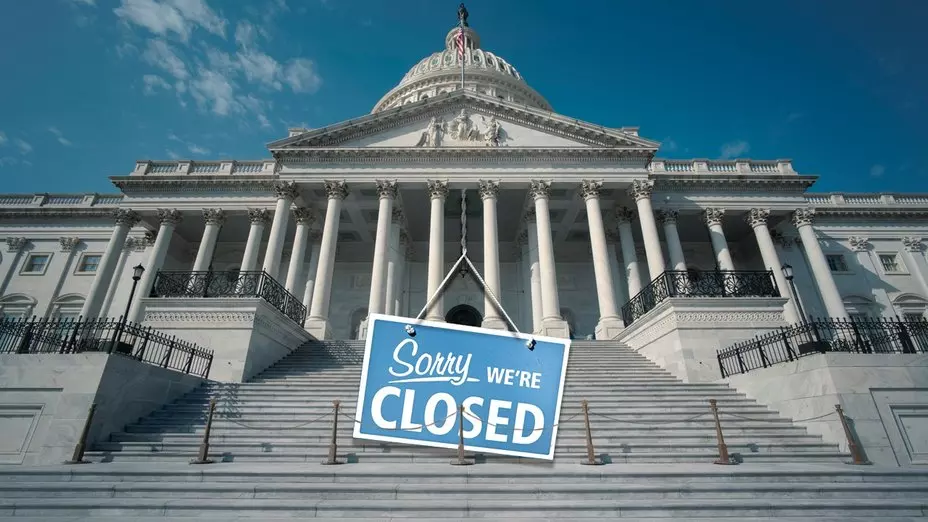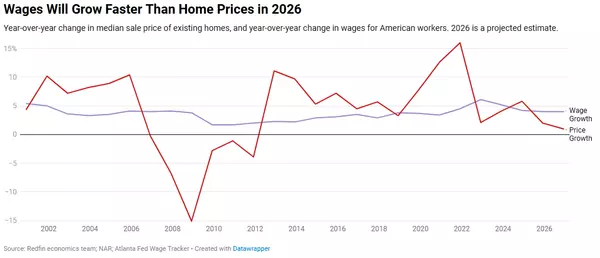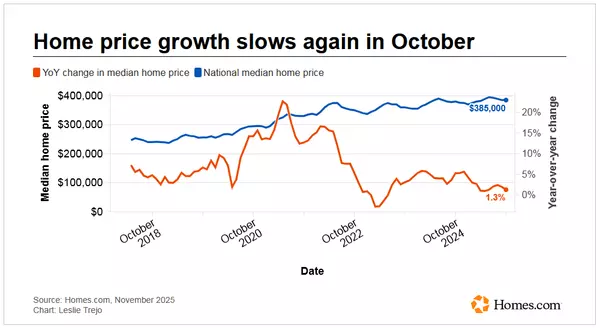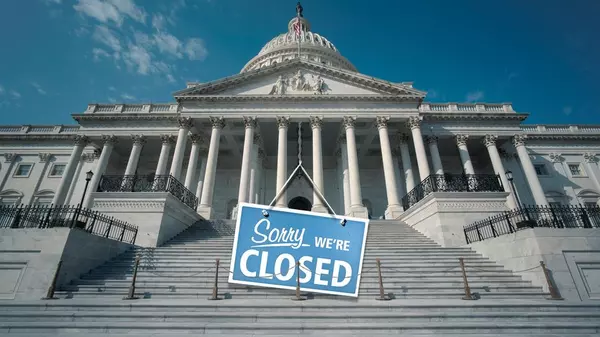How the Federal Government Shutdown Is Disrupting North Carolina's Rental Market

Rental assistance delays, federal worker furloughs, and financing freezes are shaking North Carolina’s rental housing landscape—here’s what property owners and investors need to know.
Bottom Line: The ongoing federal government shutdown is creating immediate challenges for North Carolina's rental market—threatening rental assistance payments for vulnerable tenants, reducing demand from furloughed federal workers, and complicating financing for multifamily developments. Property owners and investors need to understand these impacts and prepare contingency plans as the shutdown enters its third week.
The Current State of Emergency
Since October 1, 2025, the federal government shutdown has been disrupting rental housing across North Carolina. With HUD (U.S. Department of Housing and Urban Development) operating at just 29% capacity and 71% of staff furloughed, rental assistance programs serving thousands of families face an uncertain future. These disruptions ripple through affordable housing, private rentals, and investor confidence as federal workers miss paychecks and federal loan programs freeze.
For rental property owners, investors, and tenants across the Tar Heel State, understanding these impacts is critical to navigating the weeks ahead.
Federal Worker Furloughs: Reduced Rental Demand
The Scale of the Problem in North Carolina
Federal employment plays a major role in Research Triangle, military installations like Fort Liberty, and government offices statewide. The shutdown is hitting these communities hard:
-
750,000 federal employees furloughed nationwide
-
Thousands in North Carolina affected
-
200 North Carolina state employees furloughed due to loss of federal funding
-
13,000 federal jobs in the Triangle region potentially impacted
With paychecks paused, affected renters are delaying moves, holding back on upgrades, or struggling to pay rent.
What This Means for Rental Property Owners
-
Reduced Demand in Federal Worker Markets: Areas near Fort Liberty, RTP, and other federal hubs may see softened demand as workers hunker down.
-
Payment Concerns: While back pay is expected, immediate cash flow gaps could affect on-time rent payments.
-
Vacancy Risk: Prolonged shutdowns can lengthen lease-up times and increase vacancy exposure.
-
Market Rent Pressure: Landlords in high federal employment zones may need to sharpen pricing strategies to stay competitive.
Multifamily Development and Investment: Financing Frozen
FHA Multifamily Loans Stalled
Developers and investors with projects in the pipeline are encountering serious financing roadblocks:
-
No New Commitments: FHA multifamily loan production is paused; only projects with prior Firm Commitments can advance, often with delays.
-
RAD Conversions Delayed: New applications for the Rental Assistance Demonstration program are on hold.
-
Timing Complications: Delays risk LIHTC (Low-Income Housing Tax Credit) deadlines and increase carrying costs.
USDA Rural Development Programs Halted
Rural markets are particularly vulnerable:
-
No new USDA multifamily loans, grants, or guarantees
-
Section 521 Rental Assistance frozen for new obligations
-
Many rural communities rely heavily on USDA programs to sustain affordable rental housing stock
The Broader Economic Impact on North Carolina Rentals
Consumer Confidence Erosion
Surveys show 17% of Americans are delaying major life decisions like housing moves, and 7% are canceling plans outright. For property owners, this translates into:
-
Longer marketing times for vacancies
-
Softer rent growth trajectories
-
Cautious behavior during lease renewals
Tighter Credit Markets
Lenders are tightening credit standards in response to uncertainty, leading to higher risk premiums, lower loan-to-value ratios, and slower underwriting—impacting acquisition and refinancing timelines for North Carolina rental property investors.
Missing Market Data
Census Bureau shutdowns delay crucial rental data on construction starts, permits, and market trends, making it harder to price strategically or time acquisitions.
What North Carolina Rental Property Owners Should Do
For Landlords Participating in Federal Programs
-
Review Contracts: Identify properties with HAP (Housing Assistance Payment) contracts expiring soon and contact local housing authorities.
-
Build Cash Reserves: Aim for 3–6 months of operating reserves to buffer payment delays.
-
Communicate with Tenants: Transparency builds trust and stability.
-
Document Everything: Maintain thorough records of correspondence and payment activity.
-
Know Your Rights: Understand HUD rules regarding rent increases and HAP delays.
For Property Investors and Developers
-
Pause New Acquisitions Requiring Federal Financing: Wait until shutdown resolution for deals tied to FHA or USDA loans.
-
Diversify Portfolios: Avoid overconcentration in federal employment hubs or program-dependent markets.
-
Review Pipeline Deals: Explore backup financing options for stalled multifamily projects.
-
Monitor Local Trends: Focus on vacancy and demand data in key federal employment zones.
For Property Management Companies
-
Prepare for Tenant Financial Hardship: Implement clear, consistent policies for furloughed tenant situations.
-
Maintain Quality Service: Don’t let program uncertainty affect property maintenance and communication.
-
Stay Informed: Track HUD and USDA updates closely.
-
Communicate with Owners: Provide consistent market and financial impact updates.
Resources and Assistance for Furloughed Tenants
Tenants affected by the shutdown can explore:
-
Credit Union Support: Navy Federal, PenFed, and Congressional FCUs offer 0% APR furlough loans.
-
Rental Assistance Continuity: HUD and USDA programs are funded through November.
-
Emergency Funds: Nonprofits and community groups may offer stopgap assistance.
-
Tenant Protections: Landlords cannot raise rents during valid HAP contracts; late fees may be waived for verified hardship.
North Carolina Housing Context: A Perfect Storm
The shutdown compounds existing pressures:
-
Hurricane Helene Recovery Delays: CDBG-DR disaster recovery funding is stalled.
-
Affordable Housing Shortages: Development delays worsen already tight supply.
-
Strong Market Fundamentals at Risk: Population growth, tech and healthcare job expansion, and relative affordability have supported the market—but prolonged federal disruption could erode these strengths.
Looking Ahead: Shutdown Scenarios
-
Short-Term (Ends by November): Minimal lasting impact; assistance resumes quickly.
-
Medium-Term (Into December): Rental assistance disruptions intensify; multifamily delays deepen.
-
Long-Term (Into 2026): Affordable housing program infrastructure faces severe damage; investor confidence weakens substantially.
Section 8 and Rental Assistance Programs: A Ticking Clock
HUD has confirmed that Section 8, Project-Based Rental Assistance, and related programs will continue payments through November 2025 using pre-obligated funds. Beyond that, payments are uncertain.
Programs at risk include:
-
Section 8 Housing Choice Vouchers
-
Project-Based Rental Assistance
-
Section 202 (Elderly Housing)
-
Section 811 (Disability Housing)
-
Public Housing Operating Funds
During the 2018–2019 shutdown, over 1,000 HAP contracts expired in just one month. A repeat scenario could lead to widespread instability if this shutdown drags on.
Partner with Auralia Residential
At Auralia Residential, we understand the complexities facing North Carolina’s rental market during this unprecedented federal shutdown. Our team monitors developments daily and provides strategic guidance for:
-
Investment property analysis
-
Market research and feasibility
-
Property management and tenant relations
-
Federal program compliance
-
Strategic contingency planning
Whether you’re a landlord, investor, or property manager, we help you navigate uncertainty with clarity and confidence.
📞 Auralia Residential | 919.373.3037
Your trusted partner for Signature Leasing & Property Management Solutions across Raleigh, Wake Forest, Sanford, Cary, Apex, Durham, and surrounding areas.
Categories
Recent Posts







GET MORE INFORMATION

